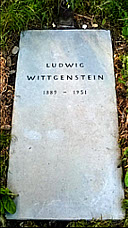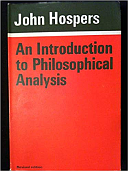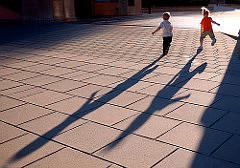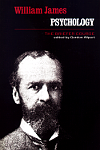
About this site
A philosophy site by Mark in Malaysia.My real interest is the mind-body problem and I’m gradually trying to figure out what I want to say about this.
Meanwhile, here’s some other stuff that I’ve found to be more tractable over the years, hard as they are in themselves.
 Wittgenstein’s grave in Cambridge receives more than a hundred visitors every year, not that there’s a contest.
Wittgenstein’s grave in Cambridge receives more than a hundred visitors every year, not that there’s a contest.I discovered philosophy when I was twenty-one and never looked back. Duck finally found water and I cannot even begin to describe what the subject did for me. If you’re looking for a good introduction to the subject, this one did something for me.

I also had many reliable teachers at all levels to whom I am very grateful. I hope that some people will find this site useful in return.
The concepts of space and time
 Infants and little children acquire the concept of space by moving around and exploring their environment.
Infants and little children acquire the concept of space by moving around and exploring their environment.
The concept of space is not given to them at birth. Rather, they acquire it gradually over months and years. Through experience, they progressively come to understand what it means to inhabit a spatial world filled with things—including their own bodies—and begin to master concepts like near and far, left and right, front and back.
And so they move around, reach for things, open and close doors, clamber into boxes, stick their hands into holes. They feel things with their hands, throw them on the floor, put things in their mouths, wander from room to room, play peek-a-boo, and so forth. Bit by bit, they come to acquire that whole host of spatial concepts that adults tend to take for granted.
So much is obvious to anyone who observes children exploring their environment. What is less obvious, however, is that these nascent explorations furnish children not just with the concept of space, but also with the concept of time. This is less obvious because the concept of time is somewhat more rarefied than the concept of space and it is far from obvious what “goes into” or “makes for” the concept of time.
All the same, it is quite certain that the concept of time is something that little children need to acquire no less than the concept of space: the concept of time is not given to them at birth either. Stronger yet, it is plausible to think that children acquire the concepts of space and time more or less at the same time—indeed in the same breath—because it is plausible to think that the concepts of space and time are inexorably entangled or otherwise entwined.
To see this entanglement, notice that, in order to grasp the concept of time, one needs to grasp (among other notions) the notions of past, present, and future “states of the world.” Thus, someone who understands time knows what it means to say that things were once that way, but are now this way, and will soon be a third way.—e.g., that the plant was once tiny, but is now large, and will soon be gigantic. If one cannot entertain thoughts of these sorts, then one has not grasped the concept of time.
But a little reflection will show that it is primarily spatial states of the world that one would be thinking of here as being past, present, or future. (The plant example above is quite typical.) In other words, our grasp of the concept of time involves an understanding that things may assume different possible spatial configurations over time. And so one must already be familiar with the idea of a spatial configuration, i.e., must already have grasped the concept of space. In this way, the concept of time presupposes the concept of space.
Conversely, it is not hard to see that the concept of space presupposes the concept of time. For our understanding of space would be nothing if we did not know that space is something that we, and other bodies, can “move through.” But understanding the idea of a body “moving through” space obviously requires a grasp of the concept of time.—One has to think, e.g., that I was standing there, but am now over here; or this was to my left, but is now on my right, and will soon be far away; and so on. Movement is a kind of change, after all, and a grasp of change requires a grasp of time. So the concept of space presupposes the concept of time.
It follows that little children must acquire the concepts of space and time together. At their tender age, in the process of acquiring the concept of space, children are in the same breath acquiring the concept of time. Each concept presupposes the other and thus both concepts need to be grasped together, bit by bit, feeding off each other.
 This makes it difficult to imagine what it must be like to be such a child, coming to terms with its environment. William James famously described the world of such a child as “one big blooming buzzing confusion.”—See, e.g., Psychology: Briefer Course, Chapter II. But what would this be like—this big blooming buzzing confusion? Can we imagine it?
This makes it difficult to imagine what it must be like to be such a child, coming to terms with its environment. William James famously described the world of such a child as “one big blooming buzzing confusion.”—See, e.g., Psychology: Briefer Course, Chapter II. But what would this be like—this big blooming buzzing confusion? Can we imagine it?
It would be easier to imagine it if we could suppose that a young child was armed at least with the concept of time, even if it had not yet mastered the concept of space. For we could then draw on our familiarity with cases of spatial disorientation—e.g., in a hall of mirrors—where we lose our spatial bearings temporarily while retaining our temporal ones. In such a case, we clamber around for a bit in a state of confusion—“What’s happening?”—until we regain our spatial footing. A child who lacked the concept of space but possessed the concept of time might be a bit like that: as it moved around, trying to figure things out, it would have a sense—like a man in a hall of mirrors—that “something was happening” without knowing quite what. And it might clamber around in this state of confusion for some time until it gained its spatial bearings. We could roughly understand what its world would be like in this case.
But this cannot really be what it is like for a child since, as explained above, it is a fiction that a child could lack the concept of space but possess the concept of time.—This fails to appreciate the extent to which the concepts of space and time are commingled. In particular, we cannot suppose that a child in the process of acquiring the concept of space could ever wonder “what was happening” to itself, since the concept of something “happening” is essentially a temporal one, and the child has yet to acquire the concept of time. And so James’s “big blooming buzzing confusion” is really much more alien than we can readily imagine. It describes the world of a being which has no clear sense of either space or time, and this is a world into which we cannot readily enter.
All the same, for anyone trying to get clear on our concepts of space and time, it is necessary to realize that the concept of time is hopelessly entangled with the concept of space. I suspect (because there is little mention of it in the literature) that this is not widely recognized, except in the context of the theory of relativity with its celebrated notion of “spacetime.” But this is not relevant here since the sorts of considerations above have nothing to do with the theory of relativity and could have been arrived at prior to Einstein.
I believe that it is a common view among philosophers (and others who think of these things) that the concept of space is somehow less puzzling or baffling than the concept of time. This cannot be right if the concept of space presupposes the concept of time. The explanation for this common view is that people who think about space usually just take the concept of time for granted.
Likewise, it seems to be a common view that the concept of time can be understood independently of the concept of space. For example, when one puzzles over various traditional mysteries of time—e.g., the question of whether only the present exists, or the question of the direction of time—one would not normally think to bring into the discussion the concept of space at all. I do not think this can be sound procedure either. In this case, I think the explanation is that people who think about time usually just fail to notice that the concept of time presupposes the concept of space. This is indeed a harder thing to notice and harder still is to notice that the conceptual dependence in fact runs both ways.
June 2018

The concept of space is not given to them at birth. Rather, they acquire it gradually over months and years. Through experience, they progressively come to understand what it means to inhabit a spatial world filled with things—including their own bodies—and begin to master concepts like near and far, left and right, front and back.
And so they move around, reach for things, open and close doors, clamber into boxes, stick their hands into holes. They feel things with their hands, throw them on the floor, put things in their mouths, wander from room to room, play peek-a-boo, and so forth. Bit by bit, they come to acquire that whole host of spatial concepts that adults tend to take for granted.
So much is obvious to anyone who observes children exploring their environment. What is less obvious, however, is that these nascent explorations furnish children not just with the concept of space, but also with the concept of time. This is less obvious because the concept of time is somewhat more rarefied than the concept of space and it is far from obvious what “goes into” or “makes for” the concept of time.
All the same, it is quite certain that the concept of time is something that little children need to acquire no less than the concept of space: the concept of time is not given to them at birth either. Stronger yet, it is plausible to think that children acquire the concepts of space and time more or less at the same time—indeed in the same breath—because it is plausible to think that the concepts of space and time are inexorably entangled or otherwise entwined.
To see this entanglement, notice that, in order to grasp the concept of time, one needs to grasp (among other notions) the notions of past, present, and future “states of the world.” Thus, someone who understands time knows what it means to say that things were once that way, but are now this way, and will soon be a third way.—e.g., that the plant was once tiny, but is now large, and will soon be gigantic. If one cannot entertain thoughts of these sorts, then one has not grasped the concept of time.
But a little reflection will show that it is primarily spatial states of the world that one would be thinking of here as being past, present, or future. (The plant example above is quite typical.) In other words, our grasp of the concept of time involves an understanding that things may assume different possible spatial configurations over time. And so one must already be familiar with the idea of a spatial configuration, i.e., must already have grasped the concept of space. In this way, the concept of time presupposes the concept of space.
Conversely, it is not hard to see that the concept of space presupposes the concept of time. For our understanding of space would be nothing if we did not know that space is something that we, and other bodies, can “move through.” But understanding the idea of a body “moving through” space obviously requires a grasp of the concept of time.—One has to think, e.g., that I was standing there, but am now over here; or this was to my left, but is now on my right, and will soon be far away; and so on. Movement is a kind of change, after all, and a grasp of change requires a grasp of time. So the concept of space presupposes the concept of time.
It follows that little children must acquire the concepts of space and time together. At their tender age, in the process of acquiring the concept of space, children are in the same breath acquiring the concept of time. Each concept presupposes the other and thus both concepts need to be grasped together, bit by bit, feeding off each other.

It would be easier to imagine it if we could suppose that a young child was armed at least with the concept of time, even if it had not yet mastered the concept of space. For we could then draw on our familiarity with cases of spatial disorientation—e.g., in a hall of mirrors—where we lose our spatial bearings temporarily while retaining our temporal ones. In such a case, we clamber around for a bit in a state of confusion—“What’s happening?”—until we regain our spatial footing. A child who lacked the concept of space but possessed the concept of time might be a bit like that: as it moved around, trying to figure things out, it would have a sense—like a man in a hall of mirrors—that “something was happening” without knowing quite what. And it might clamber around in this state of confusion for some time until it gained its spatial bearings. We could roughly understand what its world would be like in this case.
But this cannot really be what it is like for a child since, as explained above, it is a fiction that a child could lack the concept of space but possess the concept of time.—This fails to appreciate the extent to which the concepts of space and time are commingled. In particular, we cannot suppose that a child in the process of acquiring the concept of space could ever wonder “what was happening” to itself, since the concept of something “happening” is essentially a temporal one, and the child has yet to acquire the concept of time. And so James’s “big blooming buzzing confusion” is really much more alien than we can readily imagine. It describes the world of a being which has no clear sense of either space or time, and this is a world into which we cannot readily enter.
All the same, for anyone trying to get clear on our concepts of space and time, it is necessary to realize that the concept of time is hopelessly entangled with the concept of space. I suspect (because there is little mention of it in the literature) that this is not widely recognized, except in the context of the theory of relativity with its celebrated notion of “spacetime.” But this is not relevant here since the sorts of considerations above have nothing to do with the theory of relativity and could have been arrived at prior to Einstein.
I believe that it is a common view among philosophers (and others who think of these things) that the concept of space is somehow less puzzling or baffling than the concept of time. This cannot be right if the concept of space presupposes the concept of time. The explanation for this common view is that people who think about space usually just take the concept of time for granted.
Likewise, it seems to be a common view that the concept of time can be understood independently of the concept of space. For example, when one puzzles over various traditional mysteries of time—e.g., the question of whether only the present exists, or the question of the direction of time—one would not normally think to bring into the discussion the concept of space at all. I do not think this can be sound procedure either. In this case, I think the explanation is that people who think about time usually just fail to notice that the concept of time presupposes the concept of space. This is indeed a harder thing to notice and harder still is to notice that the conceptual dependence in fact runs both ways.
June 2018
Menu
 What’s a logical paradox?
What’s a logical paradox? Achilles & the tortoise
Achilles & the tortoise The surprise exam
The surprise exam Newcomb’s problem
Newcomb’s problem Newcomb’s problem (sassy version)
Newcomb’s problem (sassy version) Seeing and being
Seeing and being Logic test!
Logic test! Philosophers say the strangest things
Philosophers say the strangest things Favourite puzzles
Favourite puzzles Books on consciousness
Books on consciousness Philosophy videos
Philosophy videos Phinteresting
Phinteresting Philosopher biographies
Philosopher biographies Philosopher birthdays
Philosopher birthdays Draft
Draftbarang 2009-2024  wayback machine
wayback machine
 wayback machine
wayback machine

